Across the world, climate and environmental change are influencing patterns of diseases, distribution of resources, and movement of people—and, more directly, affecting basic indicators of human well-being like access to clean water and food. These effects act as “threat multipliers,” exacerbating existing fissures across political, social, and economic dimensions. To explore the interdisciplinary questions raised by this unprecedented moment, more than 40 educators from across the country gathered for a virtual speaker series at Harvard University, “Under Fire: Intersections of Climate and Conflict.”
Though COVID-19 prevented a traditional in-person, weeklong workshop, the speaker series offered ample opportunities to engage with peers in a virtual environment. Educators leveraged an online forum to crowdsource resources and sample lesson plans; during the live sessions, they broke out into small groups on Zoom by grade and subject to workshop ideas and questions. The speaker series touched different dimensions of the complex global challenge, from the humanitarian consequences of climate change to the technological innovations that shape experiences of this global phenomenon. GHELI’s Nina Bhattacharya organized a panel on advocacy and action, featuring experts organizing around critical issues of climate and conflict in the U.S.:
- A.J. Hudson (moderator), Climate Change Risks Researcher & Environmental Justice Organizer, Doctoral Fellow at the Abess Center for Ecosystem Science & Policy, University of Miami
- Jasilyn Charger, Land Defender, Cheyenne River Sioux Tribe
- Ashley Gripper, Health Policy Research Scholar, Robert Wood Johnson Foundation; PhD Candidate, Population Health Sciences, Department of Environmental Health, Harvard T.H. Chan School of Public Health
- Kirtrina Baxter, Organizer, Soil Generation
In particular, the panelists encouraged educators to think broadly about "climate and conflict," emphasizing that systemic racism, colonialism, incarceration in the U.S. are all "conflicts" that obstruct racial and environmental justice and influence how communities experience climate change, land sovereignty, and health. The panel generated lively conversation about how educators can best support students of all backgrounds in the classroom and nurture expansive thinking around climate activism.
First launched in 2013, Global Studies Outreach at Harvard is a cross-university collaboration among centers and programs that share a commitment to conduct educational outreach to help the public, especially K-12 teachers and students, better understand the complex world in which we live. In addition to the Global Health Education and Learning Incubator at Harvard University, GSOC is co-sponsored by the Davis Center for Russian and Eurasian Studies, the Center for Middle Eastern Studies, the Center for African Studies, and the Asia Center.
